Dir: PatriceChereau. Fr-It. 2005.90mins.
An analytical butstrangely alienated portrait of a 10 year-old marriage gone sour, PatriceChereau's latest feature is impressive on many counts but falls short ofdelivering the emotional wallop it seems to hanker for.
Expanding on JosephConrad's novella The Return to show both viewpoints in a marital crisis,Chereau delivers an accurate, perfectly sustained examination of the stages amarriage goes through once a couple realises that whatever they had in the pastwas more of a social convenience than a true emotional relationship.
But at the sametime, Chereau's visual style distracts by constantly making the audienceconscious of the technical means he employs, and the script falters due to thelong stagy diatribes he puts into the mouth of his two protagonists.
Though IsabelleHuppert and Pascal Greggory try their best under the circumstances,sympathising with their emblematic characters is hardly an easy task.
Chereau and Huppert's names will certainly give Gabrielle some initial momentum, especially at festivals (after competing at Venice it heads for Toronto), butit is difficult to imagine sustained commercial gains outside Francophoneterritory.
For reasons of hisown, Chereau preserves the historical perspective of the original novella,leaving the action in the 19th-century, though the series of eventsbetween Jean (Greggory) and Gabrielle (Huppert) could easily be transported.
Jean is a successfulbusinessman, pleased with every aspect of his life and most especially in hischoice of his perfect wife, Gabrielle. He looks at the world with the arroganceof the rich and powerful, secure in his social standing and superbly confidentin everything he does.
As for Gabrielle,she is the ideal hostess, whose salon is renown for the quality of its regularsand the gossip it generates.
Together, they seemto be a couple made in heaven - until the day when Jean returns home to find aletter from Gabrielle, saying she has left him for good. And then, before this shatteringpiece of news sink in, she returns, offering no word of explanation.
Eventually, however,she concedes to having had an affair with a man Jean finds particularlyrepulsive.
Up to this pointChereau paints a pretty realistic, if clearly ironic, image of high classsociety and its fake gloss. But then proceedings take on a more personallyintrospective mood, attempting to penetrate behind the polished surface of Jeanand Gabrielle's life together.
Chereau reveals, inquick succession, the shock, anger, reprimands, jealousy, dissatisfaction,threats, entreaties, remorse and forgiveness that all lead to one inexorableconclusion: a marriage means more than keeping up appearances, playing thesocial games and taking each other for granted.
Beneath the surface,time gradually erodes that initial mutual affection, replacing it with suchlevels of spite and resentment that life together is no longer possible.
Anyone who hasundergone similar trauma will doubtless identify with Chereau's themes andtheir accuracy. But that is as much empathy as Gabrielle can muster -despite Fabio Vacchi's passionately emotional score.
Excessively wordy, Gabrielledoes not trust itself enough to use images instead of words, for while thecarefully studied images and elegant trappings are admirable in their own way,they are hardly enlightening.
Written almost likea play - even the script is structured as the classical three-act piece,complete with chapter headings - Gabrielle might have come across betteron stage, without all cinema's paraphernalia interfering in the space betweencast and audience.
As for Huppert andGreggory, it is surprising that Chereau, usually a highly rated actors'director, fails to allow them enough space to infuse their characters withsomething more of a personal touch. The ultimate outcome is that Gabriellefunctions as a social comment and treatise on marriage - but not as anemotional drama.
Production companies
Azor Films
Studiocanal
Arte France Cinema
Love Streams Production
Albachiara
Networkmovie
International sales
Studiocanal
French distribution
Mars
Producer
Patrice Chereau
Screenplay
Patrice Chereau
Anne-Louise Trividic
inspired by Joseph Conrad's The Return
Cinematography
Eric Gautier
Editor
Francois Gedigier
Production design
Olivier Radot
Music
Fabio Vacchi
Main cast
Isabelle Huppert
Pascal Greggory
Claudia Coli
Thierry Haneisse
Chantal Neuwirth
Thierry Fortineau
Raina Kabaivanska






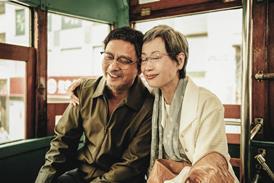
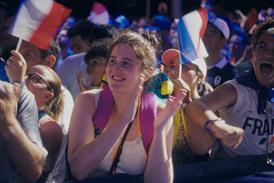




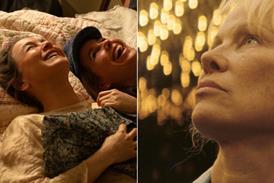
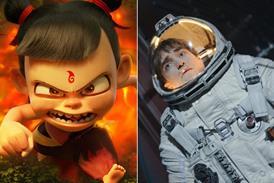
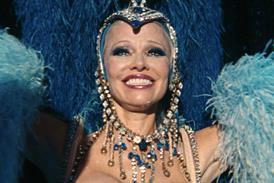




No comments yet